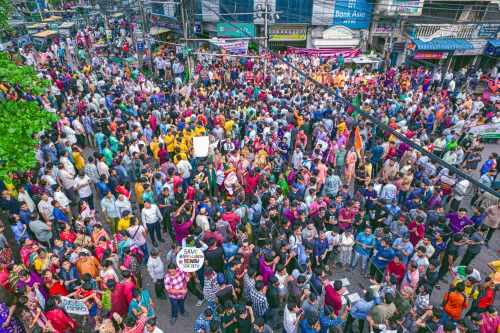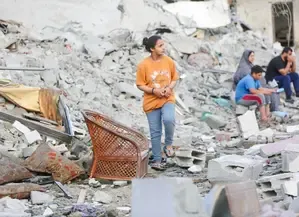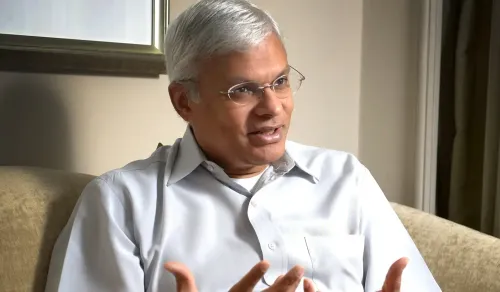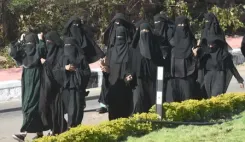Is Nepal's New PM Appointment and House Dissolution Legal?
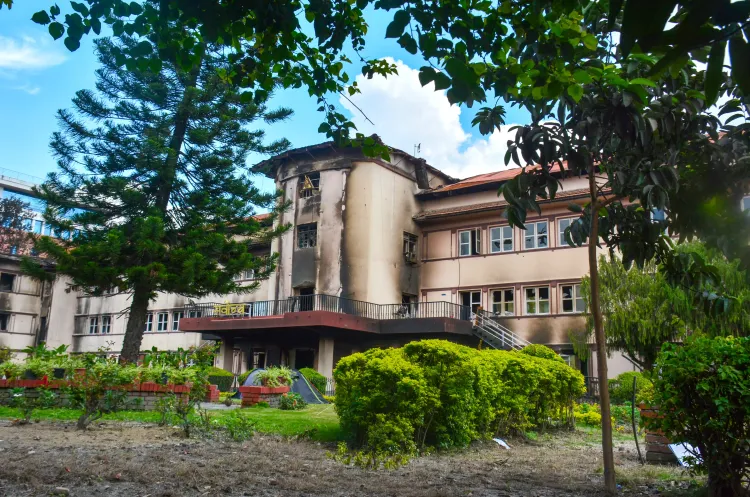
Synopsis
Key Takeaways
- Legal Challenges: Multiple writ petitions filed against the legality of Karki's appointment.
- Constitutional Provisions: Arguments based on Articles 76 and 132(2) of the Constitution.
- Political Turmoil: The CPN (UML) calls for the reinstatement of the dissolved House.
- Historical Parallels: Previous similar situations highlight ongoing constitutional challenges.
- Public Reaction: Growing protests demanding change in leadership.
Kathmandu, Oct 14 (NationPress) A series of writ petitions were submitted to Nepal's Supreme Court on Tuesday contesting the appointment of Sushila Karki as the new Prime Minister and the dissolution of the House of Representatives.
On September 12, President Ram Chandra Poudel appointed former Chief Justice Karki as Prime Minister and subsequently dissolved the Lower House, announcing fresh elections scheduled for March 5 of the upcoming year.
“A total of 10 writ petitions were filed with the Supreme Court on Tuesday, challenging the legality of Karki's appointment and the dissolution of the lower house, with several petitions calling for its reinstatement,” stated Nirajan Pandey, Assistant Spokesperson at the Supreme Court, as reported to IANS. “We have not yet processed these petitions, and a decision will be made after reviewing them.”
One of the petitions, submitted by attorney Yubaraj Poudel, contends that the Constitution prohibits Karki from assuming the role of Prime Minister.
Karki’s appointment did not follow Article 76 of the Constitution, which outlines the process for electing a Prime Minister but was made under Article 61, which defines the President's obligation to maintain national unity and uphold the Constitution.
The petition also highlights a constitutional provision that prevents former Supreme Court justices from holding governmental positions post-retirement. Article 132(2) states that no person who has previously served as Chief Justice or Judge of the Supreme Court is eligible for government office, unless otherwise specified in the Constitution.
Furthermore, the petition requests the reinstatement of the lower house, arguing that its dissolution contravened constitutional processes. It also calls for the Supreme Court to issue an order mandating the house's reinstatement to begin impeachment proceedings against the President for significant constitutional violations.
Legal analysts have suggested that Karki’s appointment was based on the “doctrine of necessity” rather than a constitutional procedure—a practice long established in Nepal during political turmoil, notably following the recent Gen-Z movement.
Constitutional lawyer Bipin Adhikari previously informed IANS that Karki’s role was filled under the principle of necessity, a method frequently utilized in Nepal since the 1950 revolution. “However, necessity should not override the rule of law. If we disregard the Constitution for any reason, it cultivates a culture of violations that could lead to further issues,” he articulated.
The petitions arise as the Communist Party of Nepal (Unified Marxist-Leninist), or CPN (UML), demands the reinstatement of the dissolved House, labeling its dissolution unconstitutional. The new government was established by displacing the administration led by UML Chairperson KP Sharma Oli.
In 2013, a similar writ was submitted against the appointment of then Chief Justice Khil Raj Regmi as Chairperson of the Council of Ministers; however, the Supreme Court did not hear the case until Regmi had already governed for 11 months, and the case lingered for four years.
During his term, Regmi facilitated the second Constituent Assembly elections in 2013. On March 28, 2016, the Supreme Court ruled that the writ had become irrelevant and there was no necessity for an interim order.
Meanwhile, Nepali Congress President and former Prime Minister Sher Bahadur Deuba made a public appearance on Tuesday during a meeting of the party’s central committee in Kathmandu. In his address, he reflected on the events during the Gen-Z protests, including assaults on him and his family. “The attacks were intended to take our lives,” he remarked, expressing gratitude to the security personnel assigned to protect him.
As Gen-Z protesters called for the removal of key figures from major parties—CPN (UML) Chairperson KP Sharma Oli, Nepali Congress President Deuba, and CPN (Maoist Centre) Chairperson Pushpa Kamal Dahal ‘Prachanda’—Deuba announced his decision not to pursue the party presidency in the upcoming general convention. Numerous Nepali Congress leaders are pressing for the next general convention to be convened as soon as possible.

